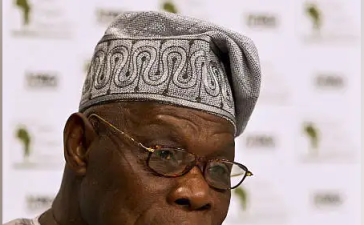The Minister of State for Health, Sen. Adeleke Mamora, has pleaded with the National Agency for Food, Drugs Administration and Control, (NAFDAC), to slash product listing cost for traditional medicines, with a view to improving access to Universal Health Coverages (UHC) in Nigeria.
Mamora made the plea during a visit by the World Health Organisation(WHO) to Nigeria to monitor the clinical trials on herbal medicines proposed for the treatment of COVID-19, on Monday in Abuja.
The News Agency of Nigeria (NAN) reports that NAFDAC has also taken steps to protect the health of consumers by drafting the ‘Guidelines’ for the Registration and Control of Herbal Medicinal Products and Related Substances in Nigeria.
Three broad classes are defined in the Guidelines, and preparations will be considered under four categories, each of which has its protocol. Extemporaneous preparations are only to be listed and not registered or advertised.
Post-listing evaluation/monitoring is, however, mandatory. Herbal medicinal products manufactured on a large scale, whether imported or locally manufactured, must be registered and their advertisement messages and scripts approved by NAFDAC prior to their marketing.
Homeopathic medicinal products must be registered and their advertisement messages approved prior to marketing. Post-registration evaluation/monitoring is also mandatory for both large-scale herbal medicinal products and homeopathic products.
He said that the task assigned to the National Institute for Pharmaceutical Research and Development (NIPRD) and NAFDAC was to scale up their activities towards the search for a local solution to the pandemic and other diseases.
The Minister said the reduction of the charges would encourage operators of Micro Small and Medium Enterprises, MSMEs, to list their products to make things easy for the MSMEs during the listing process and encourage clinic trials as well.
He also disclosed that the FMoH had inaugurated an expert committee as a protocol of evaluation of herbal medicinal products as a way of promoting research, saying that a database of traditional medicine practitioners had been developed for ease of collaboration, research and promotion of traditional medicine in the country.
“The federal government is also working on a traditional medicine policy and a committee to set up a traditional medicine institute which was triggered by the COVID-19 pandemic,” he explained.
Mamora also called on the African region to come up with several approach for promoting collaboration with a view to improving access to UHC in the region.
He noted that strengthening collaboration between practitioners of Conventional and Traditional Medicine is crucial for the integration of traditional medicine into regional health systems.
“For this purpose, the region should have a critical role to play for the scientific validation of the products and practices of traditional medicine,” he explained.
Earlier, the team lead of the WHO, Prof. Joseph Okeibunor, Regional Immunization Social Scientist with the World Health Organization Regional Office for Africa, said that the mission is in Nigeria to monitor the clinical trials on herbal medicines proposed for the treatment of COVID-19.
Okeibunor reiterated WHO’s continuous support to the the Government of Nigeria in its goal of achieving self-sufficiency in the local production of traditional medicine.
Emphasising the importance of African Traditional Medicine in the development of the health sector, he said that Africa has a long history of traditional medicines and practitioners who play an important role in providing care to populations over centuries.
The Managing Director, Ruzu Herbal Products, Dr. Robert Onyemaechi Uzu, said that herbal medicines have been actively used as complementary medicine treatments of COVID-19.
“Many countries have conducted clinical trials and research studies on COVID-19 to find a cure as quickly as possible.
“A major part of these studies also included herbal medicine as an adjuvant along with Western medicine or alone and reported somewhat better results. In India, more than half of the COVID-19 related studies registered are from herbal medications,” he explained.
He noted that all of the formulation is what can be found in Nigeria and of cause across the region.
“Our traditional system of medicine in Nigeria has recommended certain herbal formulation for the prevention, management, and recovery from certain diseases, including the COVID-19,” he added.
According to Mr Khalifah Onu, Managing Director, CBS Agro Limited, producers of The Hogargilem Natural Drink, “it is estimated that about four billion people or 80 per cent of the world’s total population in developing countries depend on herbal medicines as primary health care.
Onu said that about 25,000 herbal formulas and extracts have been used in traditional medicines in the South Asian subcontinent, noting that in China, approximately 40 per cent of total healthcare services relies on herbal drug.
He said that it would be great for Nigerians to accept and use herbal medicines that are now expanding at much faster rate in developed countries like UK and other European nations, North America and Australia.
Meanwhile, Zainab Sharif, Director and Head of Department Traditional, Complementary & Alternative Medicines (TCAM), in the FMOH, has called for more supports to enable TCAM practitioners do clinical trials on herbal studies and also be trained in the country.
Sharif noted that from the beginning of COVID-19 infection, a large number of clinical studies have reported and highlighted the benefits of herbal remedies for COVID-19 management.
She added that numerous systematic reviews have been conducted to evaluate the efficacy of herbs in the treatment of COVID-19, and other illnesses, including evidence from various case reports, case series, and observational studies.
According to her, to do official clinical trial, you must write a protocol, you must pass it through the National Health Research Ethical Committee (NHREC), and you must pass it through NAFDAC.”
She said the agency has not given any pass mark as regards COVID-19 herbal medicine, but that the agency has approved some herbal medicines that they claim can alleviate some of the symptoms of COVID-19.
NAN recalls that the review will focus on the assessment of the efficacy and side effects of herbal medicine supplementation with Western medicine in the treatment of COVID-19, through screening of available randomized controlled trials (RCT).
This will be done with a multiple herbal formulations in the management of COVID-19 patients. It will be evaluated for effectiveness and safety. [NAN]







